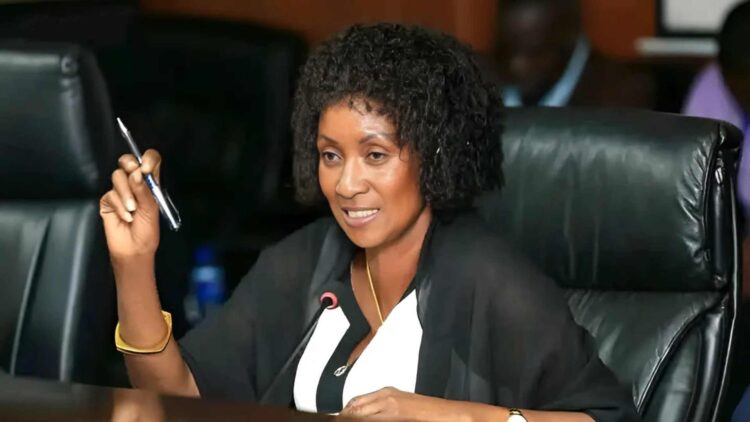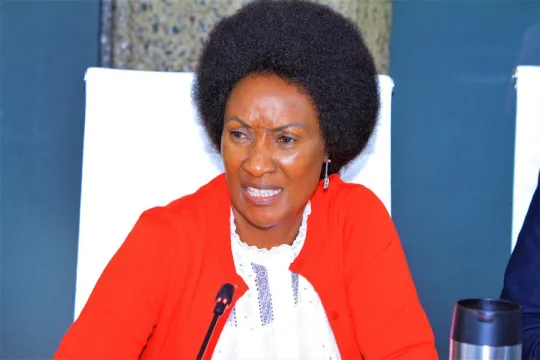Revised TSC Teacher Promotion Policy to Prioritize Age and Service Length.
Recognition for Long-Serving Teachers
In an effort to resolve the persistent issue of career stagnation among educators, the Teachers Service Commission (TSC) has introduced new promotion guidelines. Many teachers, having served for decades, have reportedly never received a promotion. The Commission now seeks to remedy this by acknowledging their commitment and years of service.
Promotion Based on Age and Tenure
According to Nyanza TSC Regional Director Japhet Kariuki, the revised promotion standards will place emphasis on the length of service and age of a teacher. He clarified that these factors would be prioritized only if the teacher in question had maintained a clean disciplinary record.
Kariuki pointed out that the Commission aimed to ensure that no teacher would serve their entire career without ever being promoted, adding that both age and years in service would now be central to the promotion process.
“We don’t want a teacher to start working and retire without a promotion. Age and years of service will now be major considerations to address career promotion stagnation,” Kariuki said.
He emphasized that going forward, teachers’ discipline records and commitment will be the key benchmarks in promotion to align them with the CBC.
Read Also: Interdicted Teachers to Undergo Rehabilitation Before Disciplinary Action in New TSC Reforms
Speaking at Migori Stadium during the second day of the Kenya Primary School Headteachers Association (KEPSHA) regional annual general meeting, Kariuki shared insights into the reforms being implemented. These changes are part of a broader initiative by the Commission to enhance both the quality of education and the welfare of teachers.
Concerns Over Transparency and Equity in Promotions
On Tuesday, Members of Parliament confronted the Teachers Service Commission (TSC) regarding what they described as unfair and unclear promotion practices. They raised alarm over the allocation of 25,252 promotion slots, citing claims of inequality and political manipulation in the process.
Appearing before the National Assembly Committee on Education, TSC Chief Executive Officer Nancy Macharia defended the exercise. She explained that the process was anchored in law and decentralised to ensure equitable regional representation. The CEO stated that the commission had made opportunities accessible by conducting interviews at the sub-county level, aiming for fairness and inclusivity.
The promotion slots were allocated earlier in the year following a Sh1 billion disbursement by the National Treasury. Among those promoted were 5,690 teachers who had responded to November advertisements and 19,943 who applied after the December call.
Dr. Macharia highlighted that priority had been given to teachers in acting roles, those who had been stagnant in the same job group for an extended period, and elderly tutors. Evaluation was also based on factors such as Teacher Performance Appraisal ratings and participation in co-curricular programs.
Legislators Question Fairness and Distribution
Despite TSC’s explanations, MPs expressed dissatisfaction with the credibility of the promotion exercise. Concerns were raised that some deserving teachers had been repeatedly overlooked, while others had been promoted several times in quick succession.
Committee Chair Julius Melly found the uniform distribution across counties questionable and inconsistent with historical practices. He argued that it ignored variations in population and educational needs, challenging how a teacher could receive multiple promotions while others remained in the same position for over ten years.
The committee instructed the TSC to provide comprehensive documentation on the promotion process. They requested data such as the number of applicants per sub-county, the evaluation metrics, and the scoring system used. Melly stated that Jamleck Muturi, the TSC chairperson, was expected to submit full records showing how merit and fairness were upheld during the selection process.
Additional criticism came from Kitutu Masaba MP Clive Gisairo, who accused the commission of political motives in promoting teachers equally across counties. He contended that while the commission has the authority to promote and redeploy educators, allocating equal slots disregarded whether the exercise was for employment or balancing political interests.
Igembe North MP Julius Taitamu also challenged the distribution, questioning why teachers from less populated counties received the same number of promotion opportunities as those from more densely populated regions. Taitamu argued that the distribution failed to reflect equity and fairness, describing it as skewed and unbalanced.
Revised TSC Teacher Promotion Policy to Prioritize Age and Service Length.
Follow Teachers Updates on Facebook, LinkedIn, X (Twitter), WhatsApp, Telegram, and Instagram. Get in touch with our editors at [email protected].



Discussion about this post